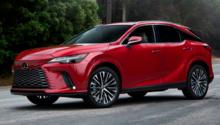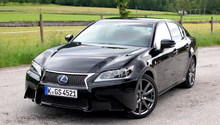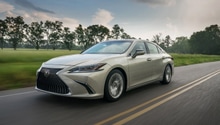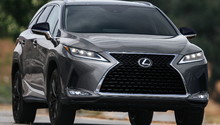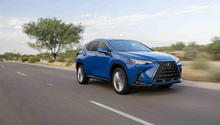Lexus: How to Maximize Your MPG
There's no doubt that keeping your car finely tuned and maintained promotes more efficient fuel economy. But a large part of how much fuel you save (or don't) boils down to one factor: you.
This article applies to the Lexus IS, ES, GS, and RX (2005-2013).
Most Lexus cars have a pretty decent MPG rating. This is particularly true for hybrid cars and those with smaller engines (2.5L vs. 3.5L). The manner in which you drive (aggressive vs. calm), your car's age and overall condition, and any extra weight inside the vehicle can influence its gas mileage. Aside from saving on fuel-related expenses over the course of your car ownership, keeping track of your car's general highway and city ratings can also indicate a potential problem, particularly when it comes to the vehicle's engine or emissions. Take a closer look at projected MPG ratings for the 2015 IS using premium gasoline.
| IS Model | Drive | Engine | City MPG | Highway MPG | Combined MPG |
|---|---|---|---|---|---|
| 250 | FWD | 2.5L V6 | 21 | 30 | 24 |
| 250 | AWD | 2.5L V6 | 20 | 27 | 23 |
| 350 | FWD | 3.5L V6 | 19 | 28 | 22 |
| 350 | AWD | 3.5L V6 | 19 | 26 | 21 |
The Lexus 2015 IS lineup includes V6 engines ranging from 2.5L to 3.5L. There are slight variations between models, with higher MPG ratings for the 250 FWD and AWD than the 350 models. Whether you're treating yourself to a newer Lexus IS or an older one, you can rest assured that these numbers haven't changed much in the past several years, meaning that you can still expect generally good fuel efficiency among older cars as well. Consider the following suggestions to keep your MPG ratings as high as possible.
Drive More Efficiently
Efficient (and sensible) driving is a great way to ensure best possible fuel efficiency around town and on the highway while optimizing performance. Unless you're an aggressive driver who is used to speeding along with rapid acceleration and braking, this simple step may only require minimal adjustments to your technique. Driving efficiently can lower fuel consumption by as much as 33 percent on the highway and 5 percent around town. Efficient driving also means observing the speed limit; gas mileage often drastically decreases once you've reached 50 MPH.
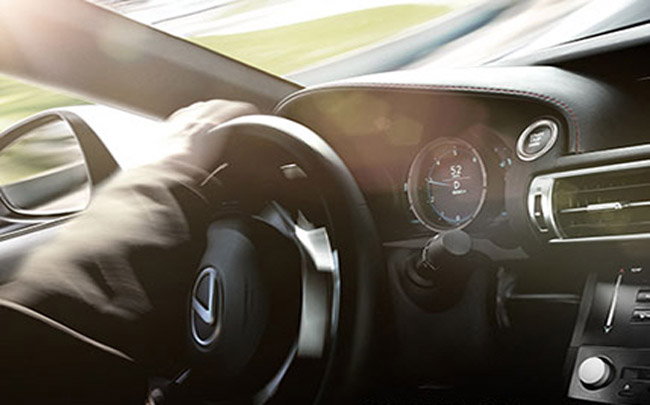
Pro Tip
Driver feedback devices, which sync with the car's computer to provide information about the driver's habits, are another helpful way to monitor your driving patterns and general MPG ratings. The same source suggests that using such a device can ultimately help you improve fuel economy by around three percent, with a roughly 10 percent gas mileage improvement.
Maintain Your Car
You should already be on top of vehicle maintenance to keep your Lexus running as smoothly as possible. Even seemingly small maintenance items, such as routine oil changes, air filter replacements, and spark plug replacements can help boost fuel economy while lowering emissions.
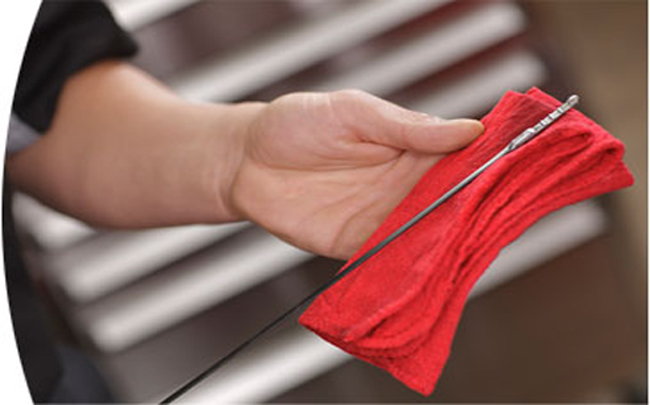
Pro Tip
Recommendations vary from one car to the next, but you can generally expect to go at least 5,000 miles before your next oil change. Be sure to check your owner's manual, as the exact mileage may vary depending on your Lexus model.
Avoid Driving with Excess Weight
It's no secret that more weight equals increased resistance and drag, subsequently dropping your MPG ratings. If you are transporting larger or heavier objects, place them inside the vehicle instead of on the roof if possible. Having a roof rack or cargo box can tremendously increase drag and resistance, causing your fuel efficiency to plummet. The Union of Concerned Scientists notes that fuel economy generally drops one to two percent per every 100 pounds of weight the car is carrying.
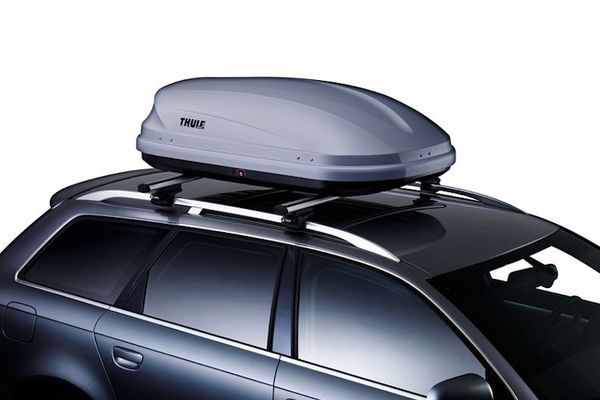
Keep Idling to a Minimum
Most of us let our cars idle at some point. Whether you're stuck in traffic or you want to keep the car warm as you dash inside, idling for an extended amount of time can lower fuel efficiency, especially if you do it consistently. One reason is because it burns more fuel to idle for several minutes than it does to turn off then restart your car. Idling for an hour burns a quarter to half a tank of gas depending on the engine size and air conditioner, according to fueleconomy.gov.
Featured Video: How to Increase MPG in Lexus
Related Sites
- How to Maximize Your Vehicle's Fuel Economy - UcsUSA.org
- Driving More Efficiently - Fueleconomy.gov

